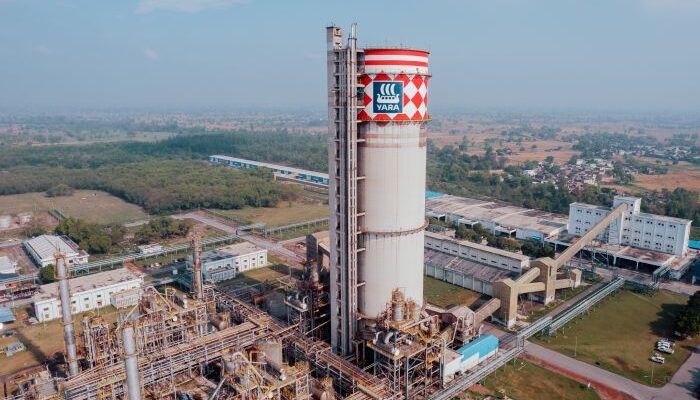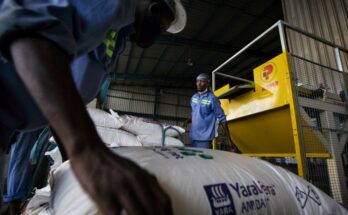Yara India, a subsidiary of Yara International and one of the global crop nutrition companies, recently overhauled its manufacturing unit in Babrala, Uttar Pradesh in a record time of 35 days, reducing its specific energy of urea to below 5 Gcal/MT urea. After this overhaul, this plant is one of the most sustainable urea manufacturing plants across India among the same vintage plants and the most sustainable among the manufacturing units under the Yara global network. It demonstrates Yara India’s commitment to enhancing efficiency and sustainability within the agricultural industry, the crop nutrition company claimed.
“This significant achievement marks a milestone since Yara’s acquisition of the plant from Tata Chemicals in 2018. Yara has successfully been able to lower the Specific Energy Consumption from 5.18 GCal/MT Urea to 4.95 GCal/MT Urea. This reduction corresponds to a 5 per cent decrease in emissions, which is equivalent to a substantial annual decrease of approximately 70,000 tonnes of carbon dioxide equivalents. By adhering to the principles of 7Rs of sustainability, the Babrala site has achieved remarkable energy efficiency, specific water consumption, effluent generation, and greenhouse gas emission reduction. These achievements position the Babrala unit as a trailblazer within the urea manufacturing industry in India,” Yara India said.
You may also like to read: FMC India conducts campaign to promote safe and judicious consumption of crop protection products
“Highlighting its commitment to sustainable land management, Yara India’s Babrala unit has undertaken water conservation projects within and beyond the fence. In the former category, Yara Babrala replaced their old STPs with new MBR-based technology STP and using the treated sewage effluent for high-end application as cooling water makeup. Also, the site developed the infrastructure for rainwater harvesting, having a potential of 128,000 KL. In the latter category, over the past two years, the company has successfully covered 350 acres of agricultural land, showcasing its dedication to fostering sustainable agricultural practices of water conservation and ensuring future food production. The company aims to cover 300 acres of land by the end of CY2023. The site has also rejuvenated four ponds (approx 15000 sq mtr) in the nearby community for groundwater recharge. The Babrala plant annually produces 1.2 million metric tonnes of urea,” the company said.
You may also like to read: Corteva Agriscience launches Novlect herbicide to control weeds in rice crop
Sanjiv Kanwar, Managing Director, Yara South Asia, said, “We take immense pride in our newly renovated Babrala plant which now has taken its position among the leading sustainable manufacturing facilities in the country. The unit embodies sustainability, with health, environment, safety, and quality as its key pillars. It has played a pivotal role in driving economic growth by creating employment opportunities through collaborations with local stakeholders and suppliers. We strive to set industry benchmarks by adopting the highest level of environmental responsibility and employing cutting-edge technologies for sustainable operations. Our continuous growth efforts at Babrala align with our global commitment to responsibly nourish the world and safeguard our planet while uplifting the local community towards the nature-positive food future.”
Maya Shanker Prasad, Plant Head, Yara Fertilisers India, said, “For 28 years, Barbara Plant has played a vital role in our nation’s food security. We have provided crop nutrients that have helped feed people across the country. We are committed to becoming one of the most sustainable plants globally.”





